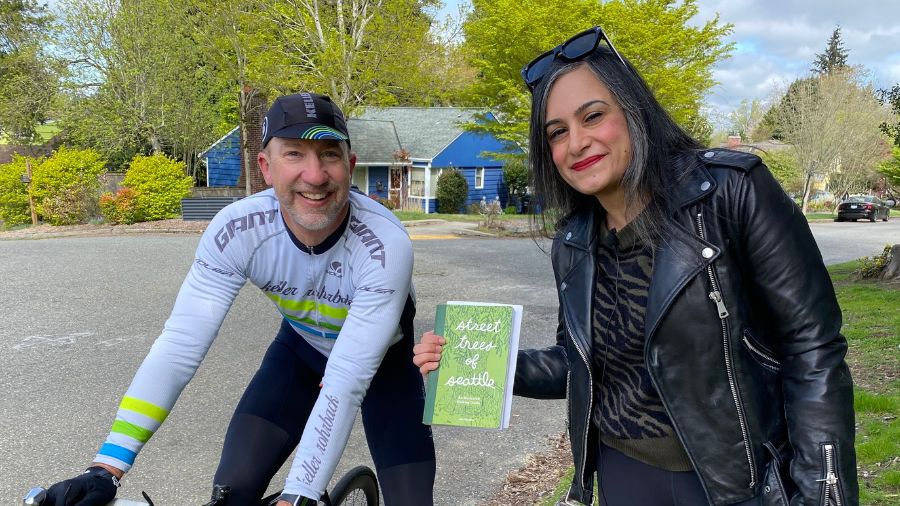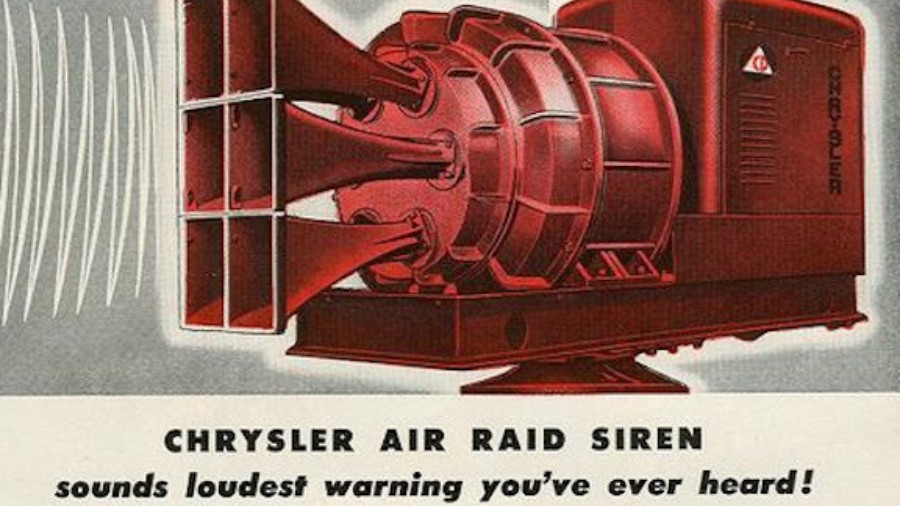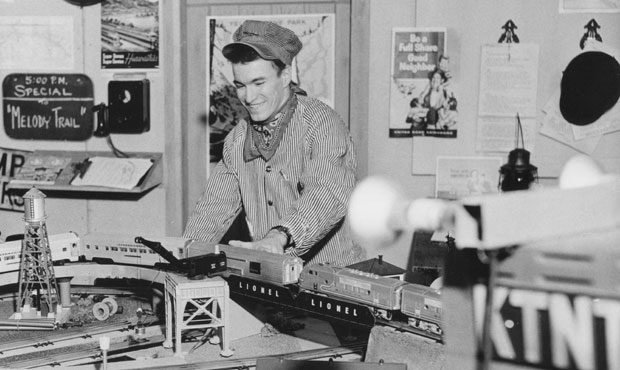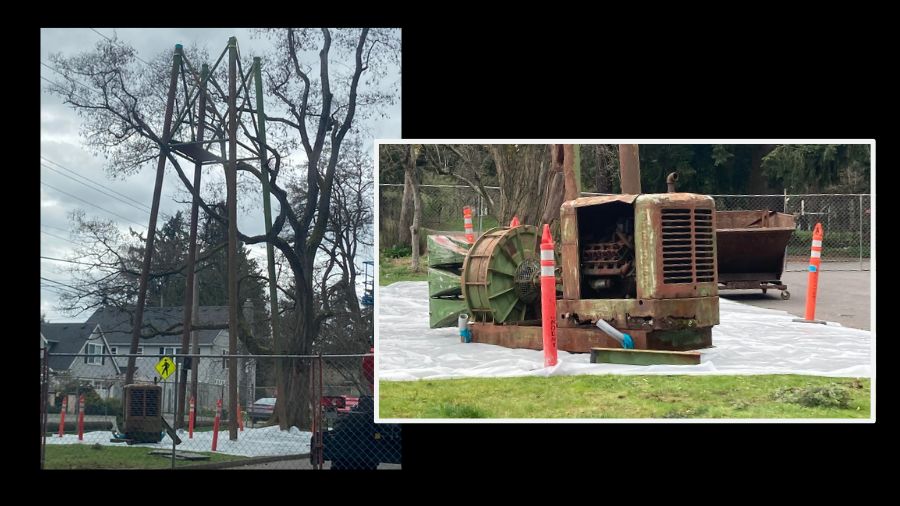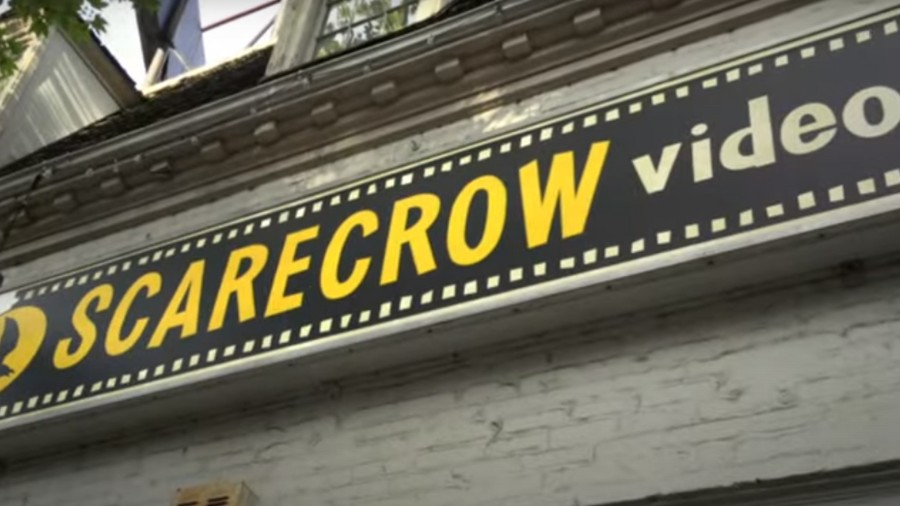UW Russia expert: Ukraine could be worst war in Europe since 1945
Feb 24, 2022, 8:30 AM | Updated: 12:34 pm

Ukrainian military truck burns at an air defense base in the aftermath of an apparent Russian strike in Mariupol, Ukraine. (AP Photo/Evgeniy Maloletka)
(AP Photo/Evgeniy Maloletka)
A professor at the University of Washington in Seattle says that as inevitable as Vladimir Putin’s invasion of Ukraine seemed, it’s still shocking see it unfold on live TV.
“Like just about everybody else, I’m watching the news in shock,” Professor Scott Radnitz told KIRO Newsradio late Wednesday night. “People have warned about this for a long time. The U.S. government was fairly confident that Russia would invade Ukraine pretty soon. And yet, watching this now happen, watching the explosions in various cities around Ukraine and the streets of these major cities in Ukraine completely empty, is really just shocking to witness.”
Radnitz is associate professor at the Henry M. Jackson School of International Studies at the UW, and serves as director of the university’s Ellison Center for Russian, East European and Central Asian Studies.
These are excerpts from a phone conversation I had with Professor Radnitz on Wednesday evening as the invasion was getting underway.
Is this the lowest point in the relationship between the United States and Russia or the former Soviet Union?
“Analysts have been trying to pinpoint the lowest ebb of this relationship for a long time. And just when they think it’s the lowest, it goes even further. Russia invaded Georgia in 2008 partly as a response to an announcement of potential NATO enlargement. In 2014, Russia invaded Ukraine [and annexed Crimea]. This one looks to be even more severe and if it comes to be anywhere as close as Putin is threatening, then absolutely, this will be not only the worst American and Russian or Soviet relations have been, this could be the worst war in Europe, aside from the Yugoslavian War in the early 90s – and possibly worse if things get out of control.”
What is Vladimir Putin hoping to accomplish?
“This is something that still has a lot of people guessing and historians are going to argue about this for years. Putin has made no secret about his disillusionment with the West and his unhappiness with the way that Russia has been treated since the end of the Cold War.
“He’s long railed against NATO and especially NATO expansion to encompass countries around Russia, although not Ukraine, and seems oftentimes personally aggrieved by the disrespect that he feels Russia gets in the international system. So it’s hard to know exactly why he chose this now and why through these means, but Putin has made no secret that he’s unhappy with the way things have turned out for Russia. And I guess he decided that it was time to hit back in a way that that he thinks will be good for him or his country, but [which] could very well backfire.”
Why is this happening now, in early 2022?
“I think even though most of your listeners will disagree with Putin’s view of the world, it’s still important to understand why he and other products of the Soviet Union might have had grievances that that they want to resolve somehow, and it’s important to look at the longer history here of Russia’s place in the international system. Russia has never quite felt at home in Europe, and Europe has never quite treated Russia as a European country for complex historical reasons. A lot of this has led to a feeling among Russians that they’re kind of left out, that they don’t get treated as well as they should, and if you look historically, that’s one of the reasons why countries start devastating wars.”
Putin is hard to analyze. He clearly has grievances with the West, are there other factors influencing this invasion and the timing?
“People have been trying to psychoanalyze Putin for years, and it’s always a challenging thing to do because no one’s ever gotten him on the couch. So we can only look at his own writings, his own speeches, talking to people who’ve known him. And sure, this is not an entirely unexpected thing given his history and given the way that he’s spoken in the past.
“But you know, it’s always more complex than that. There are always people around him, his military advisers, people who are from the security services also have an interest in war, they would benefit from it. They would benefit from a closed Russia rather than a Russia that’s integrated into the international economy.
“We also don’t know what kind of information Putin is getting. Sometimes leaders close themselves off from the world. They’re not getting good sources of information and surrounding themselves with advisers who tell them only what they want to hear, and it’s very possible that Putin even believes half of the ridiculous things that he said in that speech a couple nights ago. He may not be viewing the world clearly and rationally, and sometimes leaders also get overly optimistic about how successful they’ll be, when they launch an invasion. I’m sure people have been studying American history in the past decades can realize the parallels there with their own country.”
Is NATO – a defensive alliance, created after World War II as a bulwark against the Soviet Union and Eastern Bloc – truly a threat to Putin and Russia?
“Well it’s in the eye of the beholder, right? This is one of the challenges of international politics: something that one side considers purely defensive might be perceived by the other country that it’s supposedly defending against as an offensive threat. And you can say that this is all pretextual.
“There was nothing, there was no reason for Russia to fear anything from NATO, but given Russia’s history of having been invaded many times, it’s not out of the question that they would perceive it that way. It may be hard for Americans to understand that – we’re protected by large oceans, our neighbors are Canada and Mexico. But the Russians learned from their history how vulnerable the country is, and the fact is that it has been invaded by Nazi Germany and Napoleonic France, among others. So this is deeply embedded in the historical narratives that Russians learn in school.”
How do the Russian people feel about the invasion of Ukraine?
“There have been recent surveys that are fairly reliable in Russia, showing that most Russian citizens do not favor an invasion of Ukraine, overwhelmingly. At the same time, though, a lot of Russians do buy the story that the Kremlin has been telling them, that this is NATO’s fault, that NATO is arming Ukraine and NATO really wants to harm Russia.
“In the short term, it’s very likely that Russians may rally around Putin. They’ve been fed a lot of propaganda recently. They’ve been told that Ukraine started this and Russia are just going in as a humanitarian force. But if an occupation begins and Russian soldiers start dying, it’s going to be impossible to keep this news from ordinary Russian citizens. They do have access to the internet, after all, and it won’t take much, I think, for them to turn against the war. Whether they can do anything about that is a separate question.”
How is this situation different from the run-up to World War II more than 80 years ago – can you give any reasons to be optimistic that we are not headed for World War III?
“Well, one difference is that Ukraine is not a member of the NATO military alliance and is on its own. The countries around it have no treaty-based obligation to come to Ukraine’s defense. Now, [those countries] are supporting Ukraine by providing aid and military weaponry, but American, German, Polish and French soldiers will not fight Russia on the ground in Ukraine, which is really bad for Ukraine.
“The only hope in the short term, I think, is that Russia’s military gains are limited [because] a full-scale occupation could be devastating for everybody involved and could even backfire against the Kremlin. So, even though things are starting off and look really bad, it’s still possible that Putin would calculate that a limited war may serve his aims better than a full-scale occupation.”
You can hear Feliks every Wednesday and Friday morning on Seattle’s Morning News, read more from him here, and subscribe to The Resident Historian Podcast here. If you have a story idea or a question about Northwest history, please email Feliks here.


